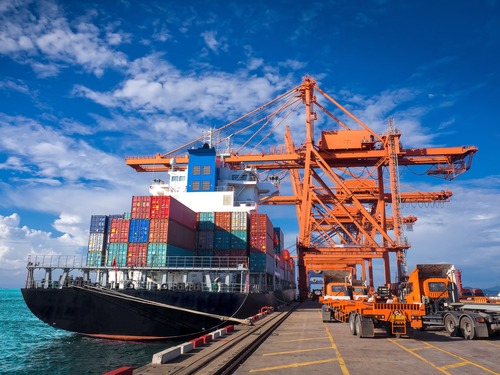
Seeking to bolster research and development, infrastructure and the workforce of the United States maritime industry, this week U.S. Sens. Maria Cantwell (D-WA) and Roger Wicker (R-MS) introduced the U.S. Maritime Administration (MARAD) Reauthorization Act.
The bill would authorize $1.6 billion for key programs at MARAD for fiscal year 2023. As the predominant federal agency for the American maritime industry, MARAD oversees financing, shipbuilding, workforce development and port infrastructure grant programs, and through this bill, it would also work to improve protections against sexual assault and harassment at sea.
“This bill makes critical investments in America’s maritime workforce, shipyards and port infrastructure that are key to keeping our supply chains moving,” Cantwell, chair of the Committee on Commerce, Science, and Transportation, said. “It will create a new innovation center to explore cleaner fuels and new technologies to boost resilience of our maritime fleet and ensure the U.S. maritime industry remains competitive well into the future.”
The largest segment of funding in the bill would be $750 million earmarked for MARAD’s Port Infrastructure Development Program. Other major beneficiaries would be the Maritime Security Program, with $318 million, as well as $120 million for the Tanker Security Program. Grants for shipyards, state maritime academies, technical assistance programs and more would all be accounted for with this funding, though.
“A strong Maritime Administration is essential for our national and economic security. I am glad to support this bill, which would improve our marine highway system, help protect against sexual assault and harassment within our merchant fleet and at the Merchant Marine Academy, support maritime education, and reauthorize the port infrastructure development program,” Wicker, ranking member on the same committee, said.
In addition to funding, the legislation would also require some new policies. For one, it demands creation of a new national maritime strategy for the economy. Establishment of a new maritime innovation center would coincide with this, to advance technological developments in the industry. Provisions for greater oversight in construction and modernization, diversity pushes, recruitment efforts and a crackdown on sexual assault offenses at sea are also among the bill’s priorities.